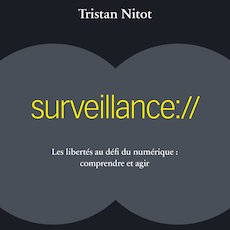Principle #7:
Free and open source software promotes the development of the Internet as a public resource.
Most, if not all, of my readers know that the Internet is running mostly on free and open-source software, at least on the server side. But the Manifesto is not just talking about this aspect of things: open source software limits the odds of having a proprietary approach of the Internet.
It is also to noted that both free software and open source software are mentioned in this principle. This is, in my opinion, that Mozilla is not taking side between the two camps, even if the "open source" expression is more often used, since there is no possible confusion between "free as in 'speech'" and "free as in 'beer'".
Principle #8:
Transparent community-based development processes promote participation, accountability, and trust.
This principle can actually be split in two:
- Transparency leads to accountability and then trust. If the Internet is a public resource, then it must be owned by the public. For the public to trust it, there must be accountability, which derives from transparency.
- community-based development processes promote participation, then trust. As not everyone can judge of the quality of project as complex as Firefox or Thunderbird without getting deeply involved in it. Therefore the project has to be open to anyone to contribute, with contribution being peer-reviewed.
Since I'll be away, comments are closed on my blog. But readers and Mozilla contributors are invited to discuss the Mozilla Manifesto on the Mozilla.Governance mailing list / newsgroup.





